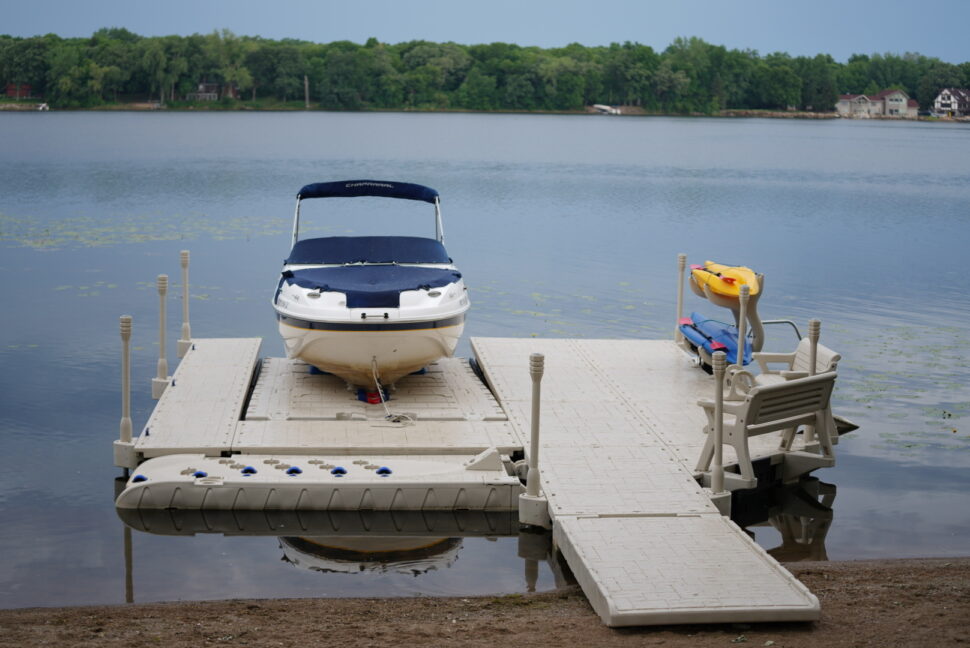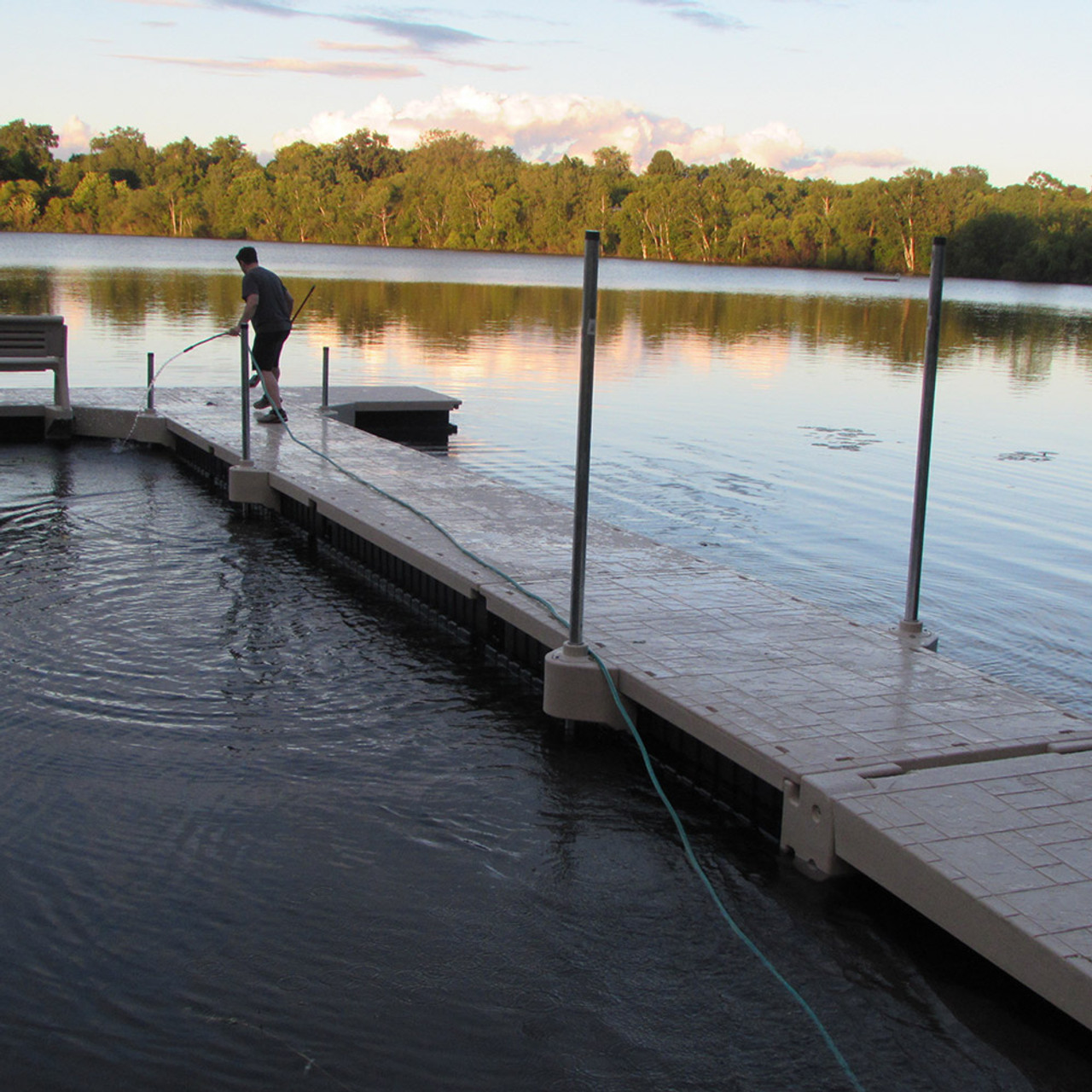Floating Dock Solutions That Transform Your Waterside into an Unwinding Oasis
Floating Dock Solutions That Transform Your Waterside into an Unwinding Oasis
Blog Article
The Ultimate Guide to Choosing the most effective Floating Docks
Selecting the suitable floating dock calls for a comprehensive understanding of different aspects that affect both efficiency and durability. Aspects such as dock kinds, products, and important attributes significantly influence your decision-making procedure.
Understanding Floating Dock Types
When selecting a floating dock, it is vital to comprehend the different kinds offered, as each offers distinctive purposes and applications. Floating docks largely fall under 3 categories: modular, stationary, and pontoon docks.
Modular docks are composed of specific areas that can be easily set up or reconfigured, making them ideal for altering water degrees and varied usages, such as business procedures or entertainment activities. Their adaptability allows for personalization based upon particular demands.

Pontoon docks are identified by their resilient structure, usually composed of several pontoons that provide stability and assistance. They are specifically fit for bigger vessels and are frequently used in marinas or for beachfront properties. Recognizing these kinds aids in picking the most appropriate floating dock to meet details needs, ensuring ideal capability and safety.
Secret Products for Durability
Picking the best materials for floating docks substantially influences their sturdiness and long life. One of the most usual materials include wood, plastic, metal, and composite materials, each offering unique advantages and restrictions.
Timber, often favored for its aesthetic appeal, requires regular maintenance to endure wetness and degeneration. Pressure-treated lumber can boost resistance to rot, but it may still be susceptible to bugs and weathering.

Plastic docks, made from high-density polyethylene (HDPE), are immune to rust, UV radiation, and impact, making them a popular option for coastal environments. Their lightweight nature also facilitates easy installment and moving.
Metal docks, usually built from aluminum or galvanized steel, supply extraordinary toughness and sturdiness. They are resistant to deterioration, particularly when treated, but might require extra insulation to stop warmth build-up in warm climates.
Composite products, integrating timber fibers and plastics, deliver the advantages of both wood and plastic, standing up to moisture and fading while calling for very little maintenance. - floating dock builder
Ultimately, the selection of materials need to line up with environmental problems, intended usage, and upkeep preferences to ensure the floating dock stays functional and visually pleasing over time.
Essential Attributes to Consider
While the choice of products is essential, taking into consideration necessary features for floating docks is similarly important to make sure optimum efficiency and individual satisfaction. One essential attribute to examine is the dock's buoyancy capability, which determines exactly how much weight it can sustain without submerging. floating dock services. This is important for fitting watercrafts, personal boat, and even recreational tasks
In addition, mobility is a considerable factor to consider. Depending on your needs, you may want a dock that is easy to deliver and dismantle, particularly if you plan to relocate it seasonally. Security is another essential attribute; a properly designed floating dock needs to decrease activity brought on by wind and water currents, giving a safe and secure system for customers.
Safety and security attributes, such as non-slip surface areas and rounded edges, are also crucial to stop mishaps, especially in wet conditions. Consider the availability click now of devices, such as bumpers, cleats, and ladders, which can boost the capability of your dock.
Installation and Maintenance Tips
Establishing up and keeping a drifting dock needs cautious preparation and focus to information to ensure its durability and optimum performance. Begin by picking an ideal area that minimizes direct exposure to solid currents and waves, which can trigger deterioration. Make certain that the water deepness suffices for the dock's elevation and that it is secured safely to stop activity.
Throughout setup, follow the supplier's standards carefully, as improper assembly can endanger security. Use top quality materials immune to rust, such as light weight aluminum or treated wood, to boost sturdiness. On a regular basis examine all parts, including drifts, connectors, and securing systems, for signs of damages or wear.
If your dock uses flotation protection tools, guarantee they stay intact and totally free from slits. By sticking to these installation and maintenance tips, you can enjoy a practical and trusted floating dock for years to come.
Budgeting for Your Dock
Budgeting for your dock is a critical step that can considerably impact your total complete satisfaction and financial investment in a waterside property. Developing a clear budget plan helps you navigate the numerous choices offered and guarantees redirected here you make notified decisions that straighten with your monetary capacities.
Begin by establishing the size and layout of the dock you need, as these factors will substantially affect the cost. Floating docks can vary significantly in rate, relying on products, buoyancy, and functions like ramps and devices. Research study different producers and suppliers to contrast costs and understand the marketplace value.
Along with preliminary costs, consider recurring expenses such as upkeep, insurance coverage, and potential repair services. Assign funds for these recurring prices to stay clear of surprises go now down the line. It's additionally sensible to budget plan for any type of required permits or inspections, which might be needed by neighborhood guidelines.
Finally, keep in mind the potential roi. A tactical dock can enhance your residential or commercial property's worth and appeal, offering a positive economic impact in the long term. By budgeting efficiently, you can make sure that your dock fulfills your demands without endangering your economic security.
Conclusion
Finally, selecting the perfect floating dock requires a thorough analysis of various variables, including dock types, materials, crucial functions, and installment procedures. Prioritizing sturdiness and compliance with regional regulations eventually boosts functionality and residential property value. Cautious consideration of budgetary restrictions will certainly further make certain a sound financial investment. By adhering to these guidelines, people can make educated decisions that promote lasting complete satisfaction and usability in aquatic settings.

While the option of materials is critical, considering necessary attributes for floating docks is equally crucial to make certain optimum performance and user contentment.Setting up and maintaining a floating dock needs cautious preparation and attention to detail to ensure its durability and optimum performance. Floating docks can vary substantially in rate, depending on products, buoyancy, and features like devices and ramps.In verdict, selecting the perfect floating dock demands a comprehensive assessment of numerous factors, including dock types, materials, important functions, and installation procedures.
Report this page